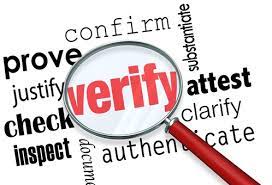Checks and Balances
Reference checks offer an opportunity to speak with a candidate’s past employers, co-workers, and even educators to give you deeper insights into someone’s background, education, aptitude, and character.
As well as verifying a candidate’s knowledge and qualifications, all employers can (and should) reach out to previous co-workers, employers, and others to find out more about promising candidates.
This practice does come with a caveat…. getting reference checks has become harder in the past two decades as former employers are reluctant to give feedback outside hire and separation dates and job duties. Since Covid-19 and the post-pandemic period, reference and background checks have become more complex – lot’s of job-seekers have measurable gaps between jobs.
Additional Insight
The questions asked during a reference check are a crucial part of the hiring process. They offer insights into a candidate’s background that might not be addressed during the interviewing process. During a well-planned reference check you are likely to find out more information about your potential new hire.
Ready Set – Check
When you are at the point in the hiring process to conduct a reference check, a little preparation will go a long way. To ensure transparency, start by getting the candidate’s consent for you to proceed with the references. Then gather all the information about the candidate and their references, such as the relationship with each one. This will help you tailor your questions for the most effective answers.
Being Prepared
Knowing that reference checks are vital to make a good hire, it might help to know what questions should be asked to get the most valuable information.
1. What was the candidate’s job title, job description, and standard duties?
It may seem unnecessary, but you’ll want to make sure you’re talking about the same person.
2. How would you describe the candidate’s collaboration and teamwork skills?
It’s important to find out how cooperative a candidate is, regardless of how solitary their prospective job is with your company.
3. What were their major strengths and problem solving skills?
It is an important question if their success hinges on a reported strength.
4. How did they deal with workload challenges?
A previous employer can offer valuable insights about how resourceful the candidate was and if they were willing to reach out for help when they had exhausted their own ideas.
5. On a scale from 1-5 how open was the candidate on feedback, criticism, and recommendations?
The reference should be able to provide insights into the candidate’s ability to take constructive feedback and that they made improvements when necessary. Were you able to perform an “exit” or “stay” interview?
6. What was the candidate’s general communication style?
Understanding a candidate’s interpersonal skills is vital to ensuring commitment to your workplace culture. I now hope you feel more comfortable with conducting reference checks. And that the answers to the above will help you make informed decisions about your candidates.
If you have any questions or need more assistance, our team is here to help you manage the whole hiring process, including the interview process.
Cardinal Staffing – We don’t just search, We Solve
Cardinal Staffing provides staffing and temp services in automotive, industrial, skilled trades, administrative, manufacturing, logistics, warehouse, and professional candidates with career opportunities at top employers.
Reach out to your local Cardinal Staffing office to hear more about current offerings or for jobs. If you are ready for the job that’s truly right for you, Cardinal will find it. – We’re waiting to hear from you.

